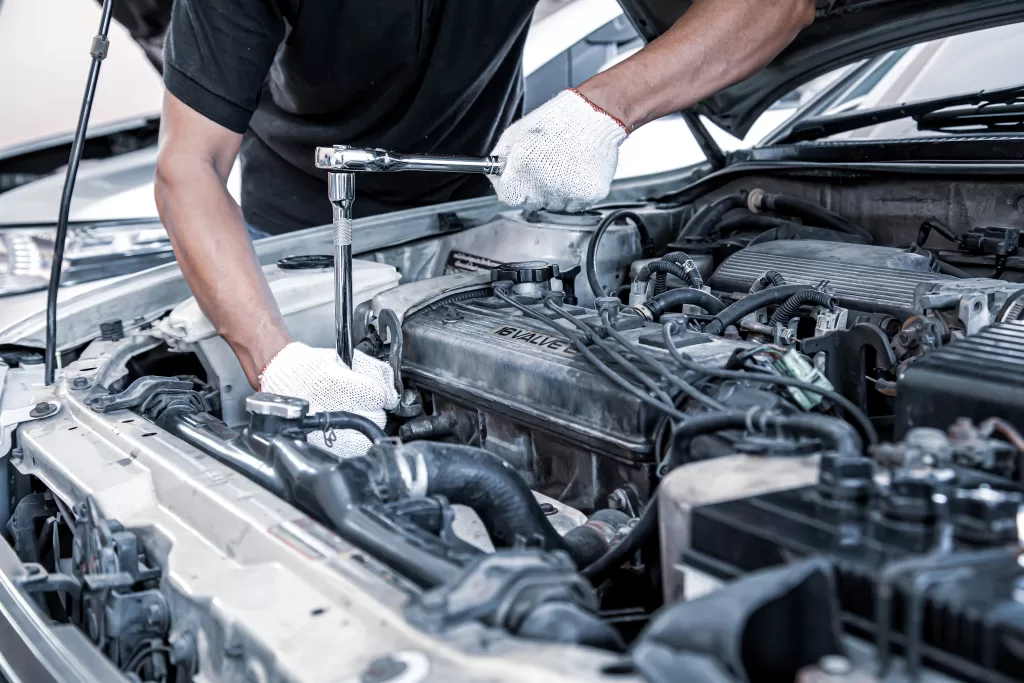Tips for Car Maintenance
Maintaining a car is like having a pet: you have to make sure it’s fed, groomed, and cleaned regularly. But unlike caring for a pet, maintaining your car goes beyond making sure it looks good and smells nice. To get the most out of your vehicle and keep it running smoothly, here are some tips for car maintenance that are easy to follow. First things first: know when to take your car in for service. Regular oil changes and tune-ups can help keep your engine running efficiently, so be sure to check the owner’s manual for recommended intervals or use an online service calculator. Also be mindful of any warning signs such as strange noises or lights on the dashboard that might indicate something is wrong with the vehicle. Read on for some more great tips for car maintenance.

Tips for Car Maintenance
Tires: Checking, Pressure
Maintaining your car’s tires is an important part of keeping your vehicle running safely and efficiently. But when was the last time you checked (or even thought about) the pressure in your tires? When it comes to car maintenance, checking tire pressure often falls through the cracks.
Think of it this way – if a tire is like a balloon, then air pressure is its lifeline! It’s what helps keep tires inflated and safe on the road. Under-inflated or over-inflated tires can cause handling issues, wear out prematurely and even lead to blow outs!
Fluids: Levels, Replenishment
We all know how important it is to maintain our cars, but a lot of us forget one of the most essential details: checking and replenishing your car’s fluids. It may not seem like an exciting task, but it can save you a lot of time and money in the long run.
Fluids are crucial for keeping your car running smoothly, so make sure you check them every couple months or so. Check your car manual for specific recommendations on oil levels and other fluid levels as they vary depending on the make and model of your car. Once you’ve identified what needs to be checked, use a dipstick or some other method that’s appropriate for each type of fluid – such as coolant levels – and add more if needed. These tips for car maintenance are most crucial for the longevity of your car.
Battery: Cleaning, Charging
When it comes to car maintenance, cleaning and charging the battery can be a bit of a chore. But with these tips for car maintenance, you’ll make sure your vehicle is running like a well-oiled machine in no time.
First of all, you should always make sure your battery terminals are free from corrosion. To do this, use a mixture of baking soda and water to dissolve any build-up and then rinse them off with clean water. Next, use a wire brush to clean any remaining debris away from the posts.
Lastly, keep an eye on the levels of electrolyte in your battery cells and make sure they’re topped up regularly. This will help ensure that your car’s battery stays healthy for many years to come! So, there you have it – some simple but effective tips for keeping your car’s battery in tip top shape!
Lights: Check, Replace
First, check each light in your car to make sure they’re all working properly. If a bulb has gone out, replace it as soon as possible so you can stay safe on the road. Don’t forget about those often-forgotten lights in your trunk or glove compartments—they need love too! Once you’ve replaced any bulbs that have burned out, double-check them again with a friend to make sure they’re all good to go.
Filters: Change Regularly
Many car owners know the importance of regular maintenance, but it’s easy to forget some of the small details. One important reminder? Change your vehicle’s filters regularly! Here are a few tips for car maintenance for making sure you don’t overlook this essential step in car care.
First and foremost, check your owner’s manual for recommendations on changing your filters. Many vehicles need new air filters every 12 months or 12,000 miles (whichever comes first). It’s also a good idea to change out cabin air filters every 15,000-30,000 miles—depending on where you live and how dusty the roads are.
Ready to get started? Stock up on all the necessary supplies from an auto parts store (filters come in many sizes and shapes), then roll up your sleeves and get to work!
Windshield Wipers: Inspect, Replace
It’s easy to forget about the little things when it comes to car maintenance. But, like windshield wipers, those little things are just as important and can save you a lot of grief when it comes time for a road trip. So, if you want your vehicle ready for whatever adventures await, here are two key tips for car maintenance for inspecting and replacing your windshield wipers.
First off, windshield wiper inspection is crucial for any car owner who wants their vehicle in tip-top shape. Check them periodically — every couple of months should do the trick — to make sure they’re still doing what they’re supposed to: clearing rain and snow away from your window so that you can see clearly while driving. If your wipers appear cracked or worn down, then it might be time to get new ones installed. This is one of the easier parts of the inspection process, since it involves just a few simple steps. It’s also fairly inexpensive, so it’s not hard on your wallet either. Don’t let your car be unprepared for bad weather by letting its windshield wipers get old and worn out.
Many automotive shops will install your new windshield wipers when purchased from them. After they’re installed, you’ll be ready to drive in weather conditions that used to make you nervous.
Final Thoughts on Tips for Car Maintenance
The road to car maintenance is a long one, but the journey doesn’t have to be difficult. With just a few easy tricks and tips for car maintenance, you can keep your car in optimal condition without needing an expensive mechanic. Here are some of our final thoughts on car maintenance that every driver should follow:
First, check your oil regularly and always make sure it’s at the proper level. This will help to keep your engine running smoothly and efficiently for longer. Second, take some time each week or month to check all of the fluids in your car; from coolant and brake fluid to power steering fluid and transmission fluid – having them all topped up will reduce wear-and-tear on your vehicle. Finally, make sure that your tires are always properly inflated. This will help to improve your fuel economy, increase the number of miles you can drive before needing a new set of tires, and even make your car safer to drive. f







One Comment
Pingback: